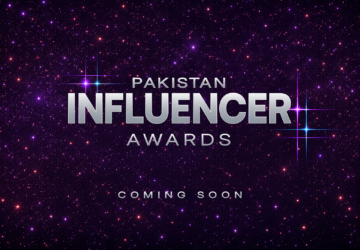Written by Arham Shoukat
The evolution and advancement in technology around the world has triggered a revolution in the utility sector to change the way it operates. With the change in customers’ desires, the digitization of the utilities has become the need of the hour as customers are demanding more flexibility and reliability within the utility sector to intermingle with more sustainable resources. Pakistan as a developing country is also on the tipping point to digitize its utility sector including the water, energy, gas, and sanitation sector while introducing technological transformation to optimize and streamline services. Moreover, many utility companies are introducing IoT in utilities by using experimentation using data virtualization and smart insights to improve overall delivery service, customer satisfaction and real-time updates. For example, companies like Entrak-SB, CISNR and Asani.io in Pakistan have worked thoroughly with public entities to plan for the future.
Despite the planning and benefits from the digitization of the utility sectors in Pakistan, there are, however, many challenges that the country faces in its current digital transformation of utilities. The major challenges include the work ethics, lack of professionalism and lack of know how of benefits of digitization of services. Many policy makers, utility companies and startups are afraid to challenge the current status-quo mainly due to the current mafias which limit disruption of the status-quo. Secondly, lack of domain knowledge and incompetence is pervasive at the implementation level. Frequent leadership changes, delays in release of funds, lack of clear procurement , lack of national policy on data governance, absence of context-driven digital payments gateway, and deficiency of secure and reliable digital access are some of the challenges additional challenges Pakistan is facing in the process of digitization of utilities.
Challenges of Digitizing Water Utilities in Pakistan
Developing countries like Pakistan, face a range of interrelated challenges in the water utility sector that they are struggling to overcome. One the most common challenges include high non-revenue water that is produced but lost due to leakages, faulty meters, or non-payment before it reaches the customer. These commercial losses are projected to cost utilities in developing countries including Pakistan approximately $3 billion per year. According to the World Bank report 2018, in Pakistan only 25 percent of households have access to piped water, most are urban residents. The rest, excessively rural, rely mainly on self-provided hand pumps and motorized pumps or at the worst on unprotected water sources. Additionally, 25% of Pakistani’s don’t have consistent access to clean and safe water. Moreover, ineffective billing collections, lacking access, expensive connection costs, low willingness to pay for poor service, and insufficient investments are some of the challenges faced by the water sector which directly impact the energy sector. One company leading the way to overcome water management challenges is Asani.io – which using IoT devices to monitor and optimize the flow of water from main water sources to further segmented ones. The startup is currently serving over 150+ units and decreases the wastage of water in supply lines by over 10%.
Challenges of Digitizing Electricity in Pakistan
The digitization process is also revolutionizing the energy sector in Pakistan, however, there are many challenges faced by this sector when it comes to proper implementation. Renewable resources, distributed generation, and smart grids demand new capabilities and are triggering new business models and regulatory frameworks. Nonetheless, there are a lack of policy implementations, scarcity of resources, poor infrastructure, lack of data in terms of energy usage, lack of creativity and innovation, fewer investment, and inefficiency in digital knowledge that defies the energy sector in Pakistan. According to PSLM 2018–2019 dataset, 91% of households (29 million households) use electricity as their key lighting source, making at least one utility bill payment per month. With an estimated annual spend of PKR 709 billion for electricity services, given that 28% is transacted digitally, there exists an opportunity to shift an estimated PKR 508 billion onto digital channels.
Additionally, one project worth mentioning in Pakistan to counter electricity theft is the one carried out between CISNR and Jazz. Jazz, Pakistan’s leading digital communications company, was awarded the prestigious GSMA Mobile for Development Utilities Innovation Fund, launched in June 2013 to test and scale the use of mobile to improve or increase access to energy, water and sanitation services. Through the grant project, CISNR installed their ElectroCure and TransfoCure modules on two of PESCO’s feeder lines to improve electricity reliability for the 262,500 consumers connected to these. Consumers experienced 50 per cent less load-shedding as a result of the project. After just three months of implementation, PESCO’s line losses on each of the 254 transformers, dropped from 1088KW to 560KW leading to savings worth $78,980 in one quarter.
Challenges of Digitizing Oil & Gas in Pakistan
Every sector has experienced digital transformation and companies are adapting to stay ahead of the competition in this fast-paced competitive industrial market. This also includes the oil and gas industry. There are many positive changes that the oil and gas industry has adopted but there are also many challenges facing the oil and gas industry today. The first is to produce more energy at a lower cost with less emission. The world is demanding cleaner energy so oil and gas companies have to supply this energy with less emission including Pakistan. Pakistan is already facing an economic deficit and there is a need to collectively invest in the oil and gas industry each year just to keep up with demand. This challenge will be difficult to achieve and if it is not handled effectively to develop or re-develop supply to stay in-step with demand, Pakistan will see a period of even higher oil and gas prices. Furthermore,
Challenges of Digitizing Sanitation in Pakistan
In Pakistan, the maintenance of hygiene and sanitation has utmost importance to improve the water sources and to reflect on the development and growth of the urban population. Despite some progress in extending access to safely managed water services, Pakistan is still not able to meet SDG 6 (Clean Water and Sanitation for All by 2030). The public sector itself presents a particular set of challenges for change initiatives such as digitization projects. Coordination, implementation, and scale-up of digitization projects are especially difficult in the public sector because systems and data are usually co-owned by different organizational units such as ministries and departments that each have their own mission, incentives, and capacity constraints. Moreover, the degree of e-literacy and access to technology among citizens also affects the success of digitization initiatives.
Conclusion
The energy, water, sanitation and waste management landscape is evolving. Consumers, users and businesses are demanding more sustainable and smart energy options with real-time insights transformative initiatives. Simultaneously, electric utilities are looking for new approaches to improve grid performance and prepare for a cleaner, distributed energy future. For the Government of Pakistan, the challenge ahead is a momentous one, one which if not addressed properly can lead Pakistani into a digital utility crisis. GSMA’s report “ Innovative Data for Urban Planning: The Opportunities and Challenges of Public-Private Data Partnerships” provides some quality insights into ways governments, business and utility companies can explore options to over come this crisis. The time to digitize is now or it might be to late.







